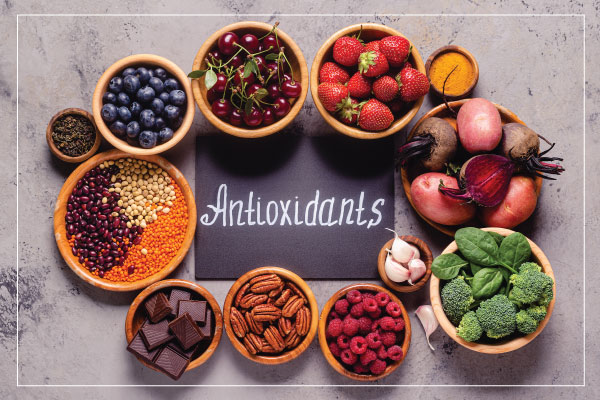This Powerful Antioxidant Has Lung, Liver, Other Health Benefits, Studies Show
N-acetyl cysteine (NAC) is another very important antioxidant that helps in building immunity, which protects us from harmful micro-organisms.
NAC is derived from the amino acid L-cysteine — one of the amino acids that are the building blocks of proteins. NAC has been used very successfully, at high doses, as an antidote for acetaminophen liver toxicity, and also to support liver health. There has been increased recent interest in NAC for the role it could play in the SARS-COV-2/COVID pandemic.
NAC is used to restore the level of reduced glutathione, which is produced by the liver, or to protect against depletion of glutathione (a substance made from amino acids, and is involved in tissue building and repair, and in immune system function).
NAC can be found in high-protein foods like meat, fish, chicken or turkey, as well as in minor sources like eggs, whole-grain products such as breads and cereals, and vegetables including broccoli and legumes. However, supplementation may be needed, including as we age.
Glutathione levels in the blood decrease with age, oxidative stress and chronic diseases. However, NAC has shown benefit in treating adult respiratory distress syndrome (ARDS) and as such, may limit or prevent lung damage from different viral infections, including COVID-19.
L-cysteine is the rate-limiting amino acid in glutathione metabolism. NAC provides the L-cysteine in the biosynthesis of glutathione. Reduced glutathione is a major defense mechanism of the body. Oxidative damage, which occurs in chronic disease (also in acute diseases) with the creation of reactive oxygen species (ROS), results in the use of glutathione faster than it can be regenerated, so new production is required. Oxidative stress also increases with age and contributes to age-related decline, such as cell death and a decrease in immune function. This creates a feedback loop where more oxidative damage = more aging/dysfunction = more oxidative damage, etc.
It is also very important to recall that ROS are generated constantly by the mitochondria (membrane-bound cell organelles) as a byproduct of energy production.
Daily doses of NAC 600 mg in postmenopausal women showed improved lymphocyte function and neutrophil function, and decreased levels of inflammatory cytokines. Multiple additional studies confirm the benefits of NAC supplementation in the setting of viral infections. You can read more about the research here.
Smokers are especially prone to infections, particularly respiratory infections. Cigarette smoking increases ROS and depletes glutathione. As mentioned, NAC has been shown to be effective in correcting both of these imbalances, and as such is even more important in smokers.
A recent study in the Journal of Endodontics showed NAC to be helpful in regenerative endodontic procedures by normalizing the immune response.
Certain bacteria can create a biofilm that contributes to antibiotic resistance. Early research shows that NAC may help prevent that biofilm production, thereby rendering the bacteria less resistant.
Lastly, patients with psychosis can exhibit decreased levels of antioxidants and increased levels of lipid peroxides (oxidation products of phospholipids and polyunsaturated fatty acids, or PUFAs, which are essential nutrients for good retina and brain functioning). This seems more prevalent in early episodes with a significant decrease in glutathione levels. Adequate supplementation, which may include N-Acetyl Cysteine and OrthoMune, may play a therapeutic role. For more information on the study “Oxidative Stress in the Early Stage of Psychosis, click here.
Here are the key points of N-acetyl cysteine:
- Powerful antioxidant.
- Supports the production/maintenance of glutathione (another significant antioxidant).
- Benefits immune function.
- Helps slow aging at the cellular level.
- Can successfully treat liver failure in acetaminophen overdose.
- Treats adult respiratory distress syndrome (ARDS).
- Can be used in the setting of COVID-19 care.
- May play a therapeutic role in psychiatric disorders.
- Shows benefit in bacterial infections.













